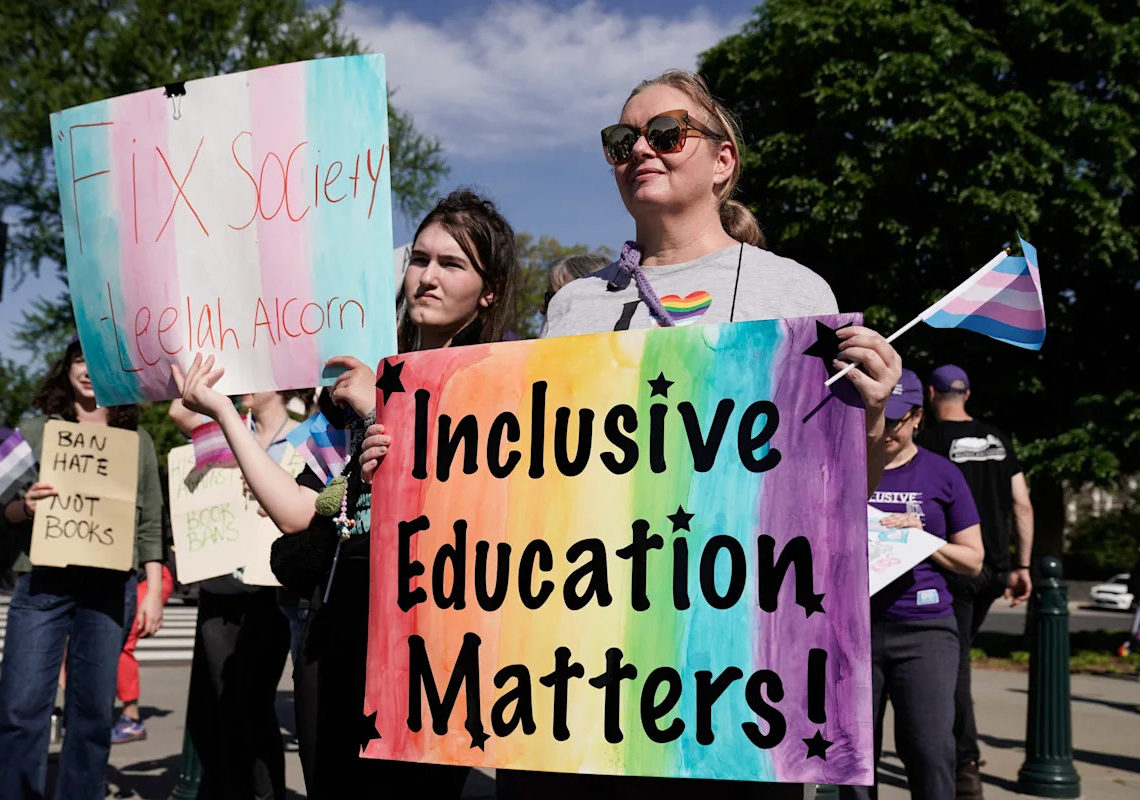WASHINGTON − The Supreme Court on June 27 sided with a group of parents who want to withdraw their elementary school children from class when storybooks with LGBTQ+ characters are being read.
In a 6-3 decision that divided along ideological lines, the court said a Maryland public school district’s refusal to allow opt-outs likely burdens parents’ First Amendment right to freely exercise their religion.
They said the school must allow opt-outs while the legal challenge continues.
Their decision continues a recent trend of high court rulings backing claims of religious discrimination, sometimes at the expense of other values like gay rights.
The Maryland parents – who include Muslims, Roman Catholics and Ukrainian Orthodox followers – said they’re not trying to prevent other students from reading the books.
But free speech advocates argued that will be the practical effect.
And national organizations representing school administrators worried schools could face a “bewildering variety” of religious rights claims.
In classrooms across the country, children are routinely taught ideas that conflict with their family’s religious beliefs, lawyers for the Montgomery County Public Schools told the court during April’s oral arguments.
What are the controversial books?
School officials said they introduced a handful of books with LGBTQ+ characters into the reading curriculum at the start of the 2022-2023 school year as part of an effort to better reflect the community.
The school system, in suburban Washington, is one of the nation’s largest and most ethnically and religiously diverse.
The controversial books include one in which the handsome prince falls in love not with a princess, but with the knight who helps him defeat a dragon. In another, “Uncle Bobby’s Wedding,” Chloe’s favorite uncle gets married to another man.
The book “Intersection Allies” features nine kids from different backgrounds, including Alejandra, who uses a wheelchair while playing basketball; Adilah, who wears a hijab in ballet class; and Kate, who prefers a superhero cape to “skirts and frills.”
More: What LGBTQ+ books are at the center of a new Supreme Court case?
After various teachers, administrators and parents raised concerns about the effectiveness and age-appropriateness of the books, the school system allowed students to be excused when they were read in class.
But officials said they had to stop that because the growing number of opt-out requests created other problems, such as high absenteeism and the difficulty of arranging alternate instruction. They also said students who believe the storybooks represent them and their families could face social stigma and isolation if classmates leave the room when the books are read.
Some parents said the books conflict with their faith
The parents who then sued said they shouldn’t have to send their kids to private school or to homeschool to avoid instruction that goes against the tenets of their religions.
“Intentionally exposing our young, impressionable, elementary-aged son to activities and curriculum on sex, sexuality, and gender that undermine Islamic teaching on these subjects would be immoral and would conflict with our religious duty to raise our children in accordance with our faith,” parents Tamer Mahmoud and Enas Barakat said in a court filing about why they didn’t want their son to be part of his second grade class’s reading of “Prince & Knight.”
But a divided panel of appeals court judges said the parents hadn’t shown that they or their children had been coerced to believe or act contrary to their religious views.
The parents asked the Supreme Court to intervene.
The Trump administration backed the parents, saying the schools had put “a price on a public benefit of public education at the expense of foregoing your religious beliefs.”
This article originally appeared on USA TODAY: Supreme Court sides with parents trying to avoid LGBTQ+ books
The post Supreme Court sides with religious parents who want to avoid LGBTQ+ books in public schools appeared first on USA TODAY.



